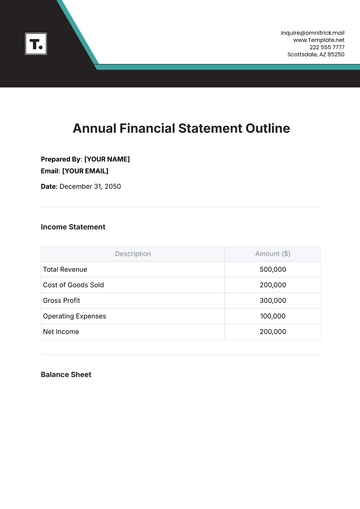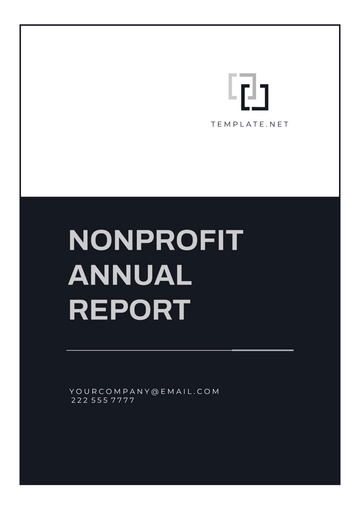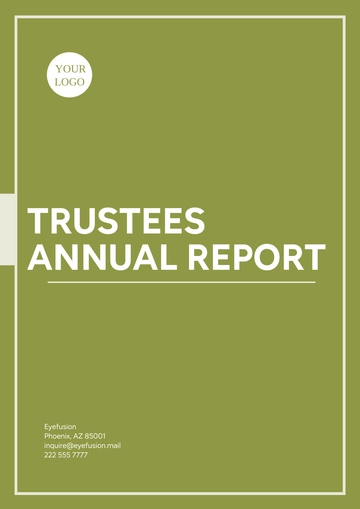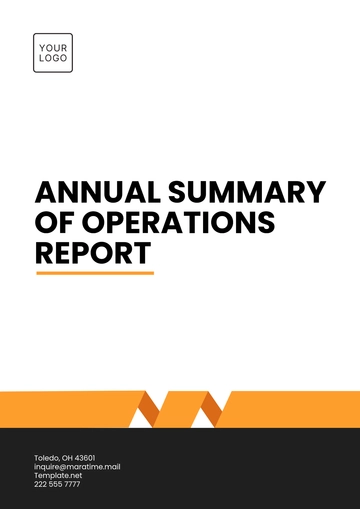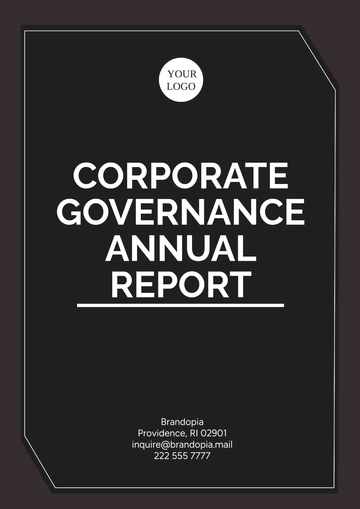Free Annual Training & Development Report HR
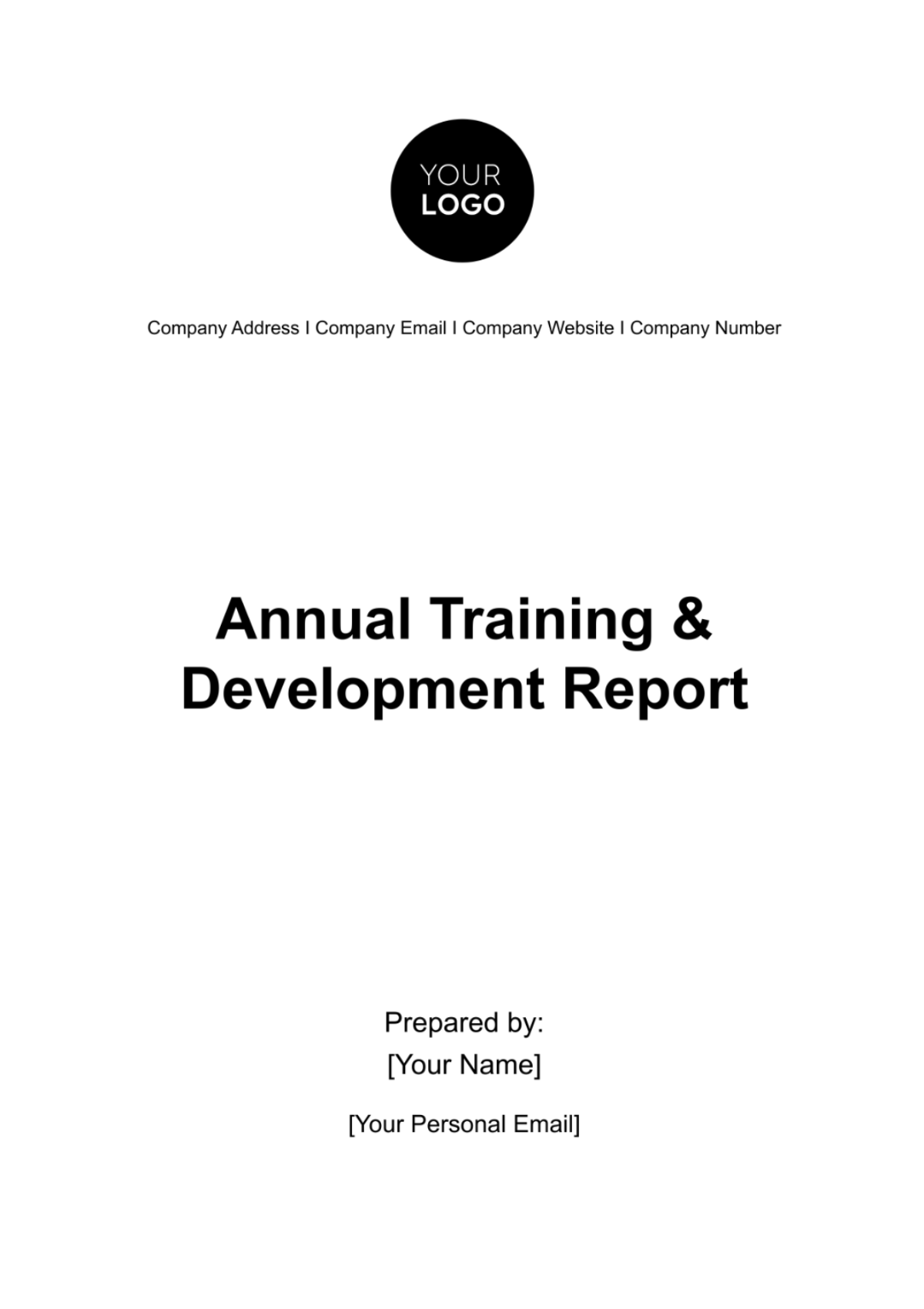
Prepared by: [Your Name]
Company: [Your Company Name]
Date: [Insert Date]
Introduction
The Annual Training & Development Report aims to provide a comprehensive overview of the training and development initiatives undertaken by the Human Resources department over the past year. It highlights key areas of focus, achievements, and areas for improvement to enhance employee skills and organizational performance.
Objectives
The primary objectives of the training and development initiatives are to:
Improve employee skills and competencies.
Increase organizational efficiency and productivity.
Enhance employee satisfaction and retention.
Ensure compliance with industry standards and regulations.
Training Programs Overview
Technical Training
Technical training programs are designed to enhance employees' technical expertise and keep them up-to-date with the latest technological advancements. These programs include:
Software and Tools Training
Industry-Specific Skills Development
Cybersecurity Awareness
Leadership Development
Leadership development programs aim to equip potential leaders with the skills necessary to lead teams effectively. These programs focus on:
Strategic Thinking
Decision-Making
Communication and Negotiation
Compliance Training
Compliance training ensures that employees adhere to legal, ethical, and organizational standards. This includes:
Data Protection and Privacy
Workplace Safety
Harassment and Discrimination Prevention
Training Attendance and Participation
The following table shows the participation rates across different training programs:
Program Type | Number of Sessions | Total Participants | Completion Rate (%) |
|---|---|---|---|
Technical Training | 20 | 400 | 90% |
Leadership Development | 10 | 150 | 85% |
Compliance Training | 15 | 500 | 95% |
Feedback and Evaluation
Employee feedback and evaluation play a crucial role in assessing the effectiveness of the training programs. Key insights from the feedback include:
High satisfaction with the quality of content and trainers.
The desire for more hands-on and interactive sessions.
Need for more personalized training paths.
Challenges and Lessons Learned
Several challenges encountered during the year include:
Limited availability of subject matter experts.
Balancing training schedules with work commitments.
Adapting to virtual training formats due to pandemic constraints.
Lessons learned from overcoming these challenges include leveraging in-house expertise, better scheduling practices, and integrating hybrid training models.
Future Outlook
Looking ahead, the HR department plans to:
Expand on-demand learning resources for employees.
Introduce mentorship programs for developing leadership skills.
Enhance reporting tools to track training efficacy.
Conclusion
Overall, the training and development initiatives undertaken this year have successfully contributed to improved employee performance and satisfaction. Continuous improvement efforts and strategic planning will ensure that training programs align with organizational goals and industry trends.
- 100% Customizable, free editor
- Access 1 Million+ Templates, photo’s & graphics
- Download or share as a template
- Click and replace photos, graphics, text, backgrounds
- Resize, crop, AI write & more
- Access advanced editor
Empower your HR team with Template.net's Annual Training & Development Report HR Template. Editable and customizable, it offers flexibility to tailor insights. Seamlessly modify data using our online AI Editor Tool, ensuring accuracy and efficiency. Elevate your training strategies with comprehensive analytics, enhancing employee growth and organizational success.
You may also like
- Sales Report
- Daily Report
- Project Report
- Business Report
- Weekly Report
- Incident Report
- Annual Report
- Report Layout
- Report Design
- Progress Report
- Marketing Report
- Company Report
- Monthly Report
- Audit Report
- Status Report
- School Report
- Reports Hr
- Management Report
- Project Status Report
- Handover Report
- Health And Safety Report
- Restaurant Report
- Construction Report
- Research Report
- Evaluation Report
- Investigation Report
- Employee Report
- Advertising Report
- Weekly Status Report
- Project Management Report
- Finance Report
- Service Report
- Technical Report
- Meeting Report
- Quarterly Report
- Inspection Report
- Medical Report
- Test Report
- Summary Report
- Inventory Report
- Valuation Report
- Operations Report
- Payroll Report
- Training Report
- Job Report
- Case Report
- Performance Report
- Board Report
- Internal Audit Report
- Student Report
- Monthly Management Report
- Small Business Report
- Accident Report
- Call Center Report
- Activity Report
- IT and Software Report
- Internship Report
- Visit Report
- Product Report
- Book Report
- Property Report
- Recruitment Report
- University Report
- Event Report
- SEO Report
- Conference Report
- Narrative Report
- Nursing Home Report
- Preschool Report
- Call Report
- Customer Report
- Employee Incident Report
- Accomplishment Report
- Social Media Report
- Work From Home Report
- Security Report
- Damage Report
- Quality Report
- Internal Report
- Nurse Report
- Real Estate Report
- Hotel Report
- Equipment Report
- Credit Report
- Field Report
- Non Profit Report
- Maintenance Report
- News Report
- Survey Report
- Executive Report
- Law Firm Report
- Advertising Agency Report
- Interior Design Report
- Travel Agency Report
- Stock Report
- Salon Report
- Bug Report
- Workplace Report
- Action Report
- Investor Report
- Cleaning Services Report
- Consulting Report
- Freelancer Report
- Site Visit Report
- Trip Report
- Classroom Observation Report
- Vehicle Report
- Final Report
- Software Report









